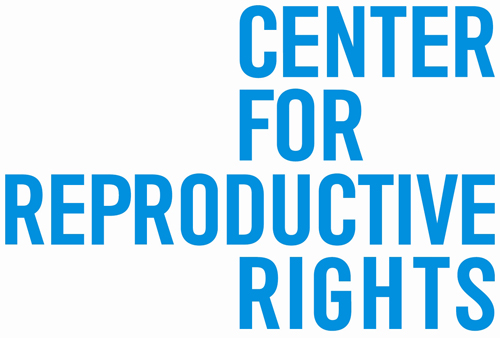What is the Center for Reproductive Rights’ issue focus?
The Center for Reproductive Rights advances reproductive rights as fundamental human rights around the world. We envision a world where every person participates with dignity as an equal member of society, regardless of gender. Where every woman is free to decide whether or when to have children and whether to get married; where access to quality reproductive health care is guaranteed; and where every woman can make these decisions free from coercion or discrimination.
Since our founding in 1992, we have been involved in every major abortion rights case argued before the U.S. Supreme Court, including winning the court’s most recent case, Whole Woman’s Health v. Hellerstedt in 2016.
What is something the Center for Reproductive Rights is currently prioritizing? Can you tell our readers a little about the goals of the campaign/project?
Just three years after our victory in Whole Woman’s Health, the Center is headed back to the Supreme Court to fight to preserve that win and the constitutional guarantee of the right to abortion.
This time, we are challenging an identical Louisiana admitting privileges law designed to close clinics and undermine access to abortion. These laws prohibit doctors from providing abortion unless they obtain admitting privileges at local hospitals – a requirement that is medically-unnecessary, because abortion is extremely safe, and often impossible to obtain, as hospital can deny privileges for any reason.
In Whole Woman’s Health, the Supreme Court found that admitting privileges laws have virtually no health or safety benefits for patients and made it clear that states can’t use sham medical regulations to shut down clinics. Nonetheless, Louisiana lawmakers modeled Act 620 on Texas’s law after recognizing its “tremendous success” in closing clinics there.
We are determined to vindicate the rights of pregnant people in Louisiana and across the United States. You can join our campaign and support the fight at myrightmydecision.org.
Do you have an “Advocacy Tip” to share or “Lesson Learned” while organizing this or other campaigns? Do you have any general words of wisdom that you’d like to share with other staff engaged in advocacy?
As a movement, we are strongest when we work together in coalition with our advocacy partners. As a reproductive rights organization, we are so fortunate to partner with generous, insightful, and creative allies from the reproductive justice, reproductive health, and broad progressive communities who are committed to securing reproductive health care for all. We continue to work to address the gaps in our knowledge, to strive to ensure all communities and perspectives are reflected in our work, especially those most affected by barriers to care, and to support the voices of those who have historically been prevented from participating in advocacy.
Many of our member organizations work with both our Bolder Advocacy initiative on c3/c4 advocacy rules and guidance, and our Justice programs on the importance of the courts and judicial nominations. How has either or both most helped you?
The courts have always been important to securing protections for reproductive rights – and now, we are counting on the Supreme Court to follow its own precedent and uphold the rule of law.
The courts have always been important to securing protections for reproductive rights – and now, we are counting on the Supreme Court to follow its own precedent and uphold the rule of law. If this law goes into effect, there will be only one doctor left to provide abortion care for the approximately one million women of reproductive age in Louisiana.
Louisiana is openly defying the Supreme Court’s decision in Whole Woman’s Health. The facts, the law, and the Constitution have not changed since that law was struck down by the Supreme Court in 2016. In fact, the impact would be worse for pregnant people in Louisiana, because abortion access in Louisiana is already hanging by a thread.
This is the very definition of an open and shut case. Our fundamental rights cannot vary from state to state. A law declared unconstitutional in Texas cannot be constitutional in neighboring Louisiana.
The Supreme Court has the opportunity in this case to show that facts, consistency, precedent, and the rule of law still matter, and that the Court remains independent and above partisan politics.
Who inspires you?
We are constantly inspired by the courage of abortion providers who are on the ground doing amazing work every day in the face of attacks on their professions, their values, and even their lives, and by the patient storytellers whose experiences demonstrate the consequences of anti-abortion attacks on reproductive rights.
More than 470 abortion restrictions have been enacted by state legislatures since 2011, from outright bans to medically-unnecessary restrictions intended to shut down clinics. Although many have been challenged in court, they have nonetheless created a very real web of obstacles that patients must navigate in order to access their constitutionally protected right to abortion.
Learn more about Center for Reproductive Rights here.
